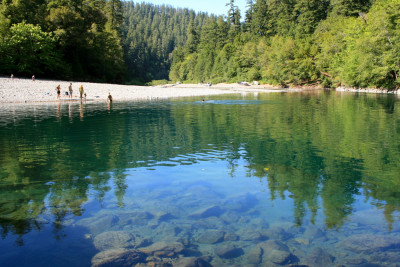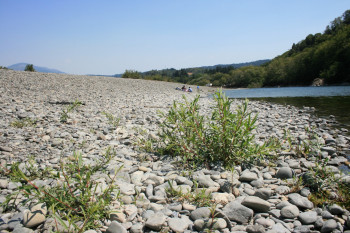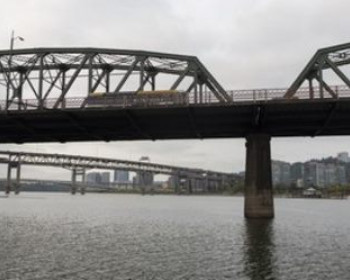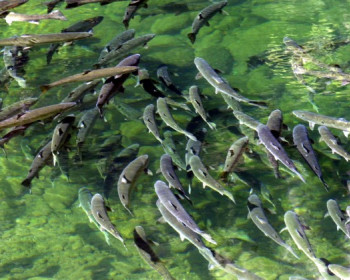Defending the Chetco
By Andrew Hawley
NEDC and Earthrise Law Center recently won a significant victory for the Chetco River and for open and transparent government. The Chetco River in southern Oregon is a spectacularly beautiful river that once supported a thriving population of coho salmon. NEDC has been working for nearly five years to protect the Chetco River and the few remaining coho from the impacts of instream gravel mining. Currently, there are three mining companies that would like to extract rock, sand and gravel from the river near Brookings, Oregon. These operations, if left unchecked, appear to be poised to continue the long-standing practice of removing significant amounts of aggregate from the river, destroying the river in the process.

In 2007, the U.S. Army Corps of Engineers began a process of issuing new permits authorizing mining to these operations by holding closed-door meetings between the agencies and the mining industry. This process effectively prevented meaningful public participation in decisions that will affect the river and the region for years to come. The result of these meetings was a permit that allowed continued, excessive mining of the river.
In 2010, NEDC sued to stop this illegal permit and expose this flawed process. NEDC’s efforts came to fruition earlier this year when United States Magistrate Judge John Acosta ruled that the Corps unlawfully shut the public out of the permitting process This, as the court found, was in blatant violation of the Federal Advisory Committee Act, which requires federal agencies to obtain advice and recommendations from committees that provide balanced viewpoints and to provide the public easy access to the committee’s meetings and information. In addition, the court ruled that the Corps failed to justify the controversial decision to use a single permit to authorize all three operations at once, in violation of the Clean Water Act. Such general permits are reserved for activities that will have only minimal impacts on the environment.

Given the significant impacts instream gravel mining has on the river and the Coho, it cannot rightly be said these impacts are minimal. Tellingly, as the court found, the Corps failed to make this threshold determination.
The court also found that the National Marine Fisheries Service, the federal agency charged with the protection of the critically imperiled Southern Oregon/Northern California Coastal Coho, failed to correctly evaluate the risks to the Coho associated with the proposed mining. NMFS estimates that fewer than 100 fish remain in a population that once numbered over 60,000 individuals. Despite this, and the significant impact historical mining has had on the population, NMFS failed to critically examine the effects of the permitted mining and the impact it will have on the species’ continued existence.
As a result of this decision the Corps will be required to engage in a new, open process when it next considers instream gravel mining on the Chetco River. When that happens, NEDC will be there to ensure that the best available science on what the river needs to again support a robust population of Coho is at the front and center of the discussion.
*NEDC is grateful to our co-counsel at Earthrise Law Center who made this success possible.
More Northwest Environmental Defense Center (NEDC) Stories
Northwest Environmental Defense Center is located in Law School.
MSC: 51
email nedc@lclark.edu
voice 503-768-6726
fax 503-768-6671
Jonah Sanford
Executive Director
jonah@nedc.org
Eve Goldman
Law Clerk
nedc@lclark.edu

